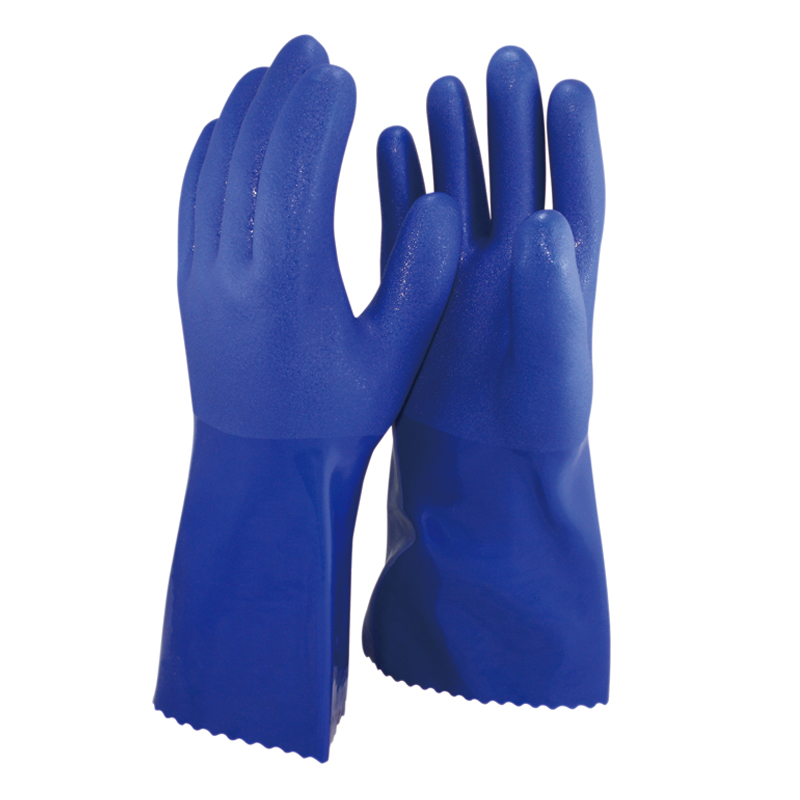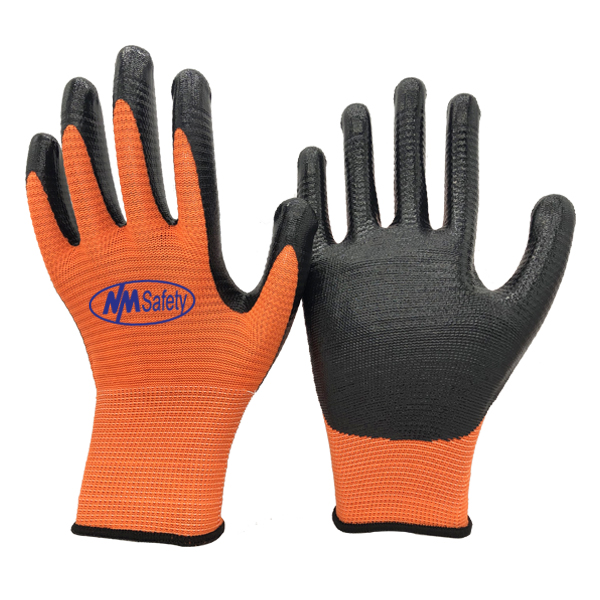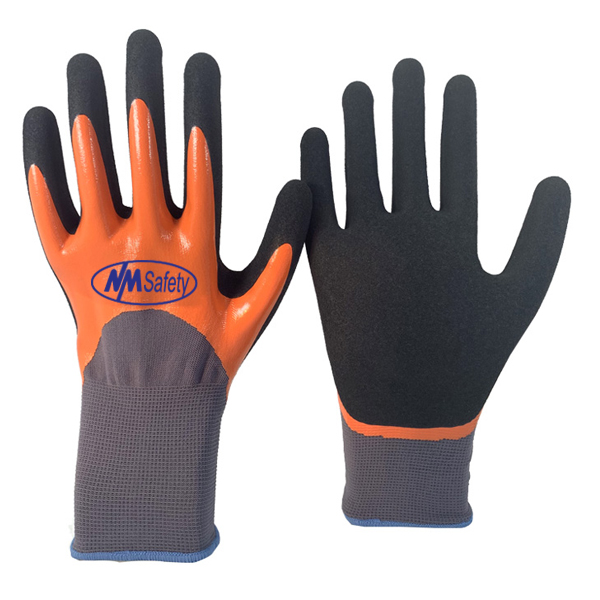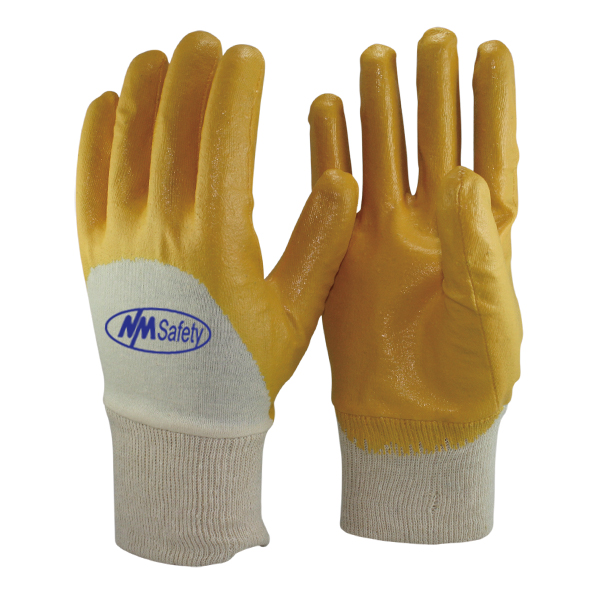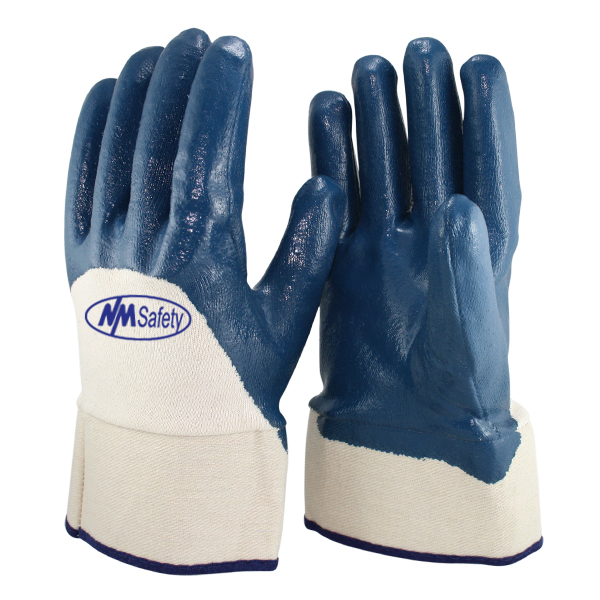What exactly are PVC-coated gloves? PVC gloves are manufactured by covering your gloves with a polyvinyl chloride layer on the outside. Chemicals, abrasions, punctures, and wounds from your instruments and substances are all protected by this outer layer. They are exceedingly thin, which makes operations that need fingertip sensitivity, such as sewing, much easier. Farmers, construction workers, commercial fishermen, agriculturists, warehouse employees, as well as the medical and chemical sectors, all use this sort of chemical-resistant glove. There are also latex-free PVC gloves available, which are ideal for those with sensitive skin.
Is it true that PVC-coated gloves are chemically resistant? Chemical-resistant PVC gloves are widely used in agricultural and other industries to handle anhydrous ammonia and fertilizer. They're not just resistant to water and chemicals, but also gasoline, diesel fuel, and other water-based chemicals.
What are coated gloves, exactly?: Chemical-resistant Coated gloves are free of the components that contribute to latex allergies, just like the standard disposable Nitrile gloves used in the medical and foodservice industries, and are thus a high-quality solution when seeking safe nitrile work gloves.
What are the advantages of using coated gloves? A coating covers the entire palm and all five fingers of Blue PVC Gloves. This coating protects against abrasions, cuts, and snags, as well as a wide range of oils and chemicals. It also provides excellent dexterity, grip, and durability while allowing the top portion of your hand to breathe, allowing you to remain comfortable. Blue PVC Gloves are a preferred choice for employers and employees in a wide range of industries, including mechanics, painting, general assembly, and construction gloves, due to the outstanding level of protection and comfort they give. These Blue PVC Gloves have the distinct advantage of providing a barrier between your hands and your job while retaining much of the dexterity of bare hands. Work gloves used to be predominantly constructed of leather or a thick, bulky material that limited dexterity and feel. Blue PVC Gloves have grown quite popular as a result of this property and are used all over the world. Workers can conduct their jobs while remaining productive and comfortable.
Gloves with a nitrile coating: The most prevalent type of coating on a coated work glove is flat dip technology. This type of work glove is created by dipping the glove into a Nitrile polymer coating that covers the palm and fingers. This process of dipping gloves produces a seamless coated glove that is both durable and comfortable to wear. Because of these benefits, nitrile-dipped gloves have quickly become the industry standard in the automotive, assembly, and warehousing industries. They also coined the term "construction gloves."
Thickness and defense: Clearly, the thickness of the coating has an impact on the amount of protection it gives. When looking for chemical-resistant gloves, the thickness of the coating is vital to consider. The coatings are available in a variety of thicknesses, each of which offers varying levels and types of protection.
In general, all types of covered work gloves will protect you from cuts, abrasions, and minor chemical exposure. Nitrile work gloves with a thicker layer are more resistant to harsher chemicals and are far more resilient against cuts and punctures. The thicker coating is created by dipping the glove in the Nitrile polymer several times.
Grip Strength: The fingers and palms of most high-quality safety work gloves offer increased grip to assist you to hold and moving heavy and slippery objects. For example, some leather and knitted work gloves feature different palm coverings that assist you to keep your grip.
Shield: Shielding your hands with a thick layer of material in the shape of a good pair of work gloves protects them in numerous ways. Electric shocks and strong chemicals are just two of the threats that leather work gloves can protect your hands against. You can also safely touch, push, and drag objects without getting hurt.
PVC vs. Nitrile Gloves: PVC and nitrile gloves are used in a variety of commercial businesses to properly handle hazardous or toxic substances. Because PVC and nitrile gloves are not made of latex, they can be a safe alternative for latex-sensitive employees and patients. The fundamental distinction is the task for which they were created and the substances that each type of glove can withstand. PVC (vinyl) gloves are commonly used in the foodservice, cleaning, and housekeeping industries, as well as a latex substitute for people who are allergic to latex. Furthermore, the longevity of PVC gloves varies depending on the work they are designed for. Foodservice businesses need the lightest durability to prepare and serve food, whereas mining, auto, and construction sectors use the heaviest durability to handle acids, caustics, and some solvents. Nitrile gloves are intended for use by healthcare and laboratory personnel who come into contact with bloodborne pathogens or who undertake sterile procedures such as surgery. Nitrile gloves, like PVC gloves, can be used once and then thrown away. Medical staff almost always wear disposable gloves. Furthermore, because nitrile gloves are comprised of synthetics rather than latex, they can be used by people who are allergic to latex.
Considerations: The main distinction between PVC and nitrile gloves is the substance used to make them. Furthermore, they can be designed to perform some of the same tasks. A doctor's office, for example, may have PVC, latex, and nitrile gloves available for usage with their patients. While both PVC and nitrile can be used to make examination gloves, nitrile gloves do not have the same ability to withstand dangerous chemicals and heat as PVC gloves.
Conclusion: NMSafety chemical-resistant PVC-coated gloves include a heavyweight covering and a 100% cotton shell for comfort. Chemical-resistant PVC gloves are widely used in the agricultural industry to handle anhydrous ammonia and fertilizer. They're not just resistant to water and chemicals, but also gasoline, diesel fuel, and other water-based chemicals. Our PVC chemical gloves have a textured palm for greater grip and added protection. For more detailed information, see our page or visit our website.






